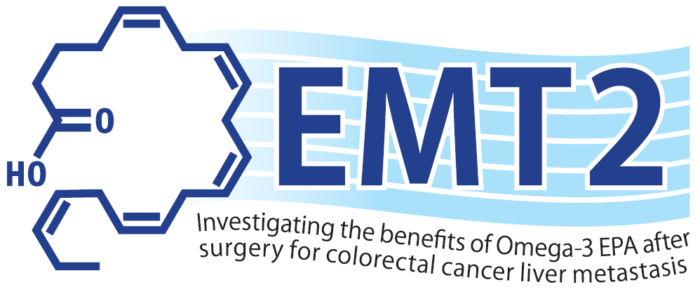Until the EMT2 trial results are evaluated and published, there is no evidence that taking EPA is beneficial to patients who have had surgery for bowel cancer spread to liver. In the EMT2 trial, patients took a specific, high-dose form of EPA and therefore the study results (beneficial or otherwise) cannot be assumed to be similar for other omega-3 preparations with a different dose or level of purity.
By way of comparison, the daily dose of pure EPA in the trial was 4 x 1000 milligram capsules compared with typical omega-3 capsules available in Health Food outlets, which usually contain 200 milligrams EPA per capsule, and which include a mixture of other substances.
Overall, it is not recommended to take an alternative EPA or other omega-3 preparation to replace the trial treatment until the EMT2 trial results are available.
As soon as we can, we will describe the results of the trial in Plain English to you and family members, if you wish to know.


